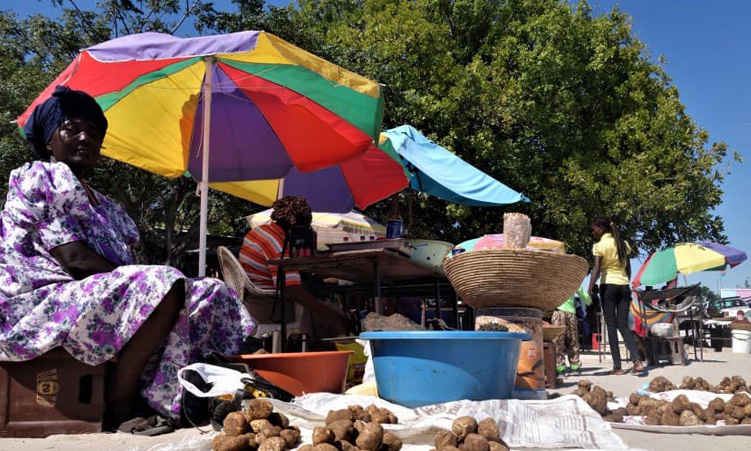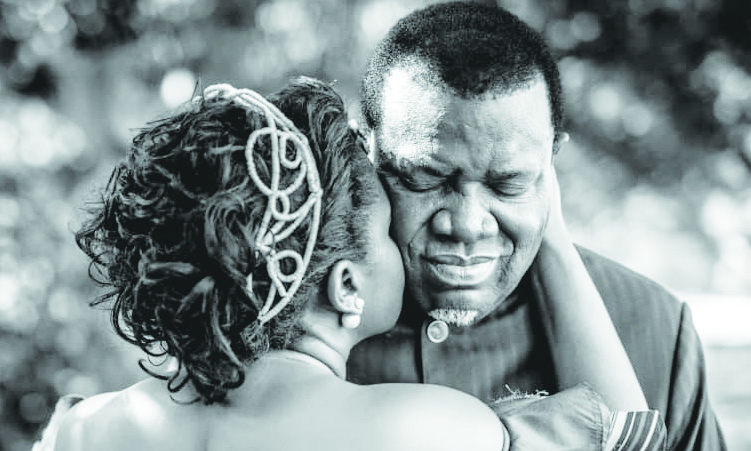THE historic inaugural session of Namibia’s first Parliament of Children was an exemplary exercise yesterday, with punctuality strictly adhered to and motions for debate already announced in the first few minutes, unlike their adult colleagues, who usually come late.
The Speaker of the Children’s Parliament, Bronson Tjihukununa, wasted no time as he took command of the gavel and outlined proceedings. “Today we make history and it is a proud day for children in Namibia,” Tjihukununa said.Altogether 14 motions will be tabled today and debated from this morning until Wednesday afternoon.The 26 young Members of Parliament (MPs) will tackle HIV-AIDS and how children in Namibia are affected by the pandemic, school dropouts, how to improve Grade 10 pass rates and the importance of English as medium of instruction in order to be a successful student at tertiary institutions.Other motions include the importance of information and communication technology (ICT) in schools, discipline, malnutrition, hygiene and health at schools and hostels, and migration from rural to urban schools.The 26 MPs, two from each of the 13 regions, are accompanied by one teacher from each region.They will further debate on crime and mushrooming squatter camps in cities, street children, activities for the youth, the socio-economic rights of children and the quality of education in towns compared to rural areas.One of the young MPs urged that the issue of corporal punishment should also be debated.”It is made unlawful in Namibia, but some teachers are still doing it,” the teenager told the House.An interesting debate is expected when the motion on the role and involvement of the private sector in education will be debated.The recent change to the National Senior Schools Certificate from the Cambridge Certificate will be another topic of discussion.Unicef representative to Namibia Khin Sandi-Lwin said some children in Namibia did not receive education.”How can they benefit? Listen to each other and learn from another,” she told the 26 MPs.Education Minister Nangolo Mbumba requested the children to debate in a dignified way.”Even if you differ in opinion, respect the opinion of your fellow MP, that is democracy” he urged.According to the Speaker of the National Assembly, Theo-Ben Gurirab, the Children’s Parliament project will be taken into the regions at a later stage.”In this democratic and peaceful Namibia you have many choices to make your dreams come true.But you must play your part to avoid bad things that will destroy your dreams,” Gurirab said.”Today we make history and it is a proud day for children in Namibia,” Tjihukununa said.Altogether 14 motions will be tabled today and debated from this morning until Wednesday afternoon.The 26 young Members of Parliament (MPs) will tackle HIV-AIDS and how children in Namibia are affected by the pandemic, school dropouts, how to improve Grade 10 pass rates and the importance of English as medium of instruction in order to be a successful student at tertiary institutions.Other motions include the importance of information and communication technology (ICT) in schools, discipline, malnutrition, hygiene and health at schools and hostels, and migration from rural to urban schools.The 26 MPs, two from each of the 13 regions, are accompanied by one teacher from each region.They will further debate on crime and mushrooming squatter camps in cities, street children, activities for the youth, the socio-economic rights of children and the quality of education in towns compared to rural areas.One of the young MPs urged that the issue of corporal punishment should also be debated.”It is made unlawful in Namibia, but some teachers are still doing it,” the teenager told the House. An interesting debate is expected when the motion on the role and involvement of the private sector in education will be debated.The recent change to the National Senior Schools Certificate from the Cambridge Certificate will be another topic of discussion.Unicef representative to Namibia Khin Sandi-Lwin said some children in Namibia did not receive education.”How can they benefit? Listen to each other and learn from another,” she told the 26 MPs.Education Minister Nangolo Mbumba requested the children to debate in a dignified way.”Even if you differ in opinion, respect the opinion of your fellow MP, that is democracy” he urged.According to the Speaker of the National Assembly, Theo-Ben Gurirab, the Children’s Parliament project will be taken into the regions at a later stage.”In this democratic and peaceful Namibia you have many choices to make your dreams come true.But you must play your part to avoid bad things that will destroy your dreams,” Gurirab said.
Stay informed with The Namibian – your source for credible journalism. Get in-depth reporting and opinions for
only N$85 a month. Invest in journalism, invest in democracy –
Subscribe Now!






